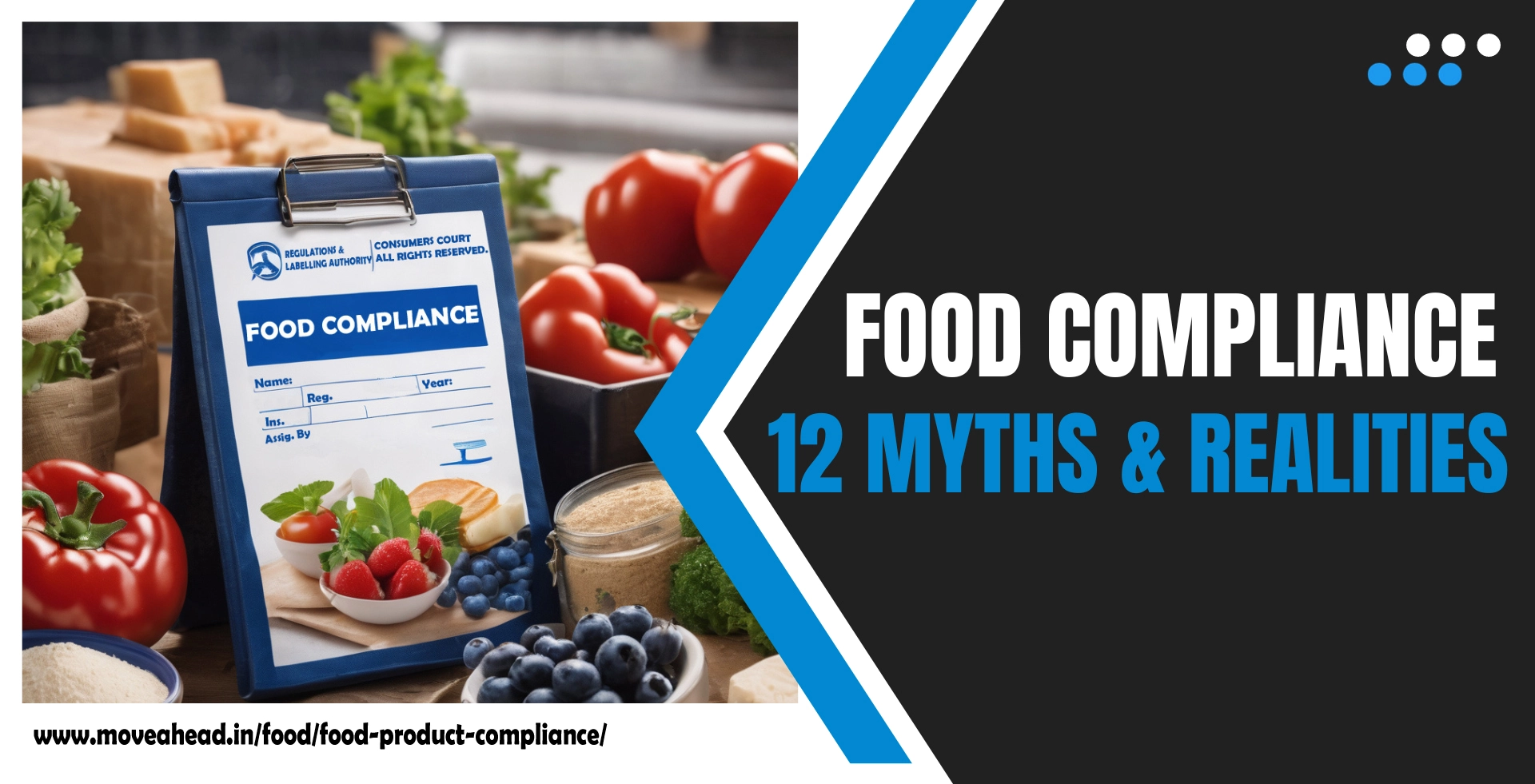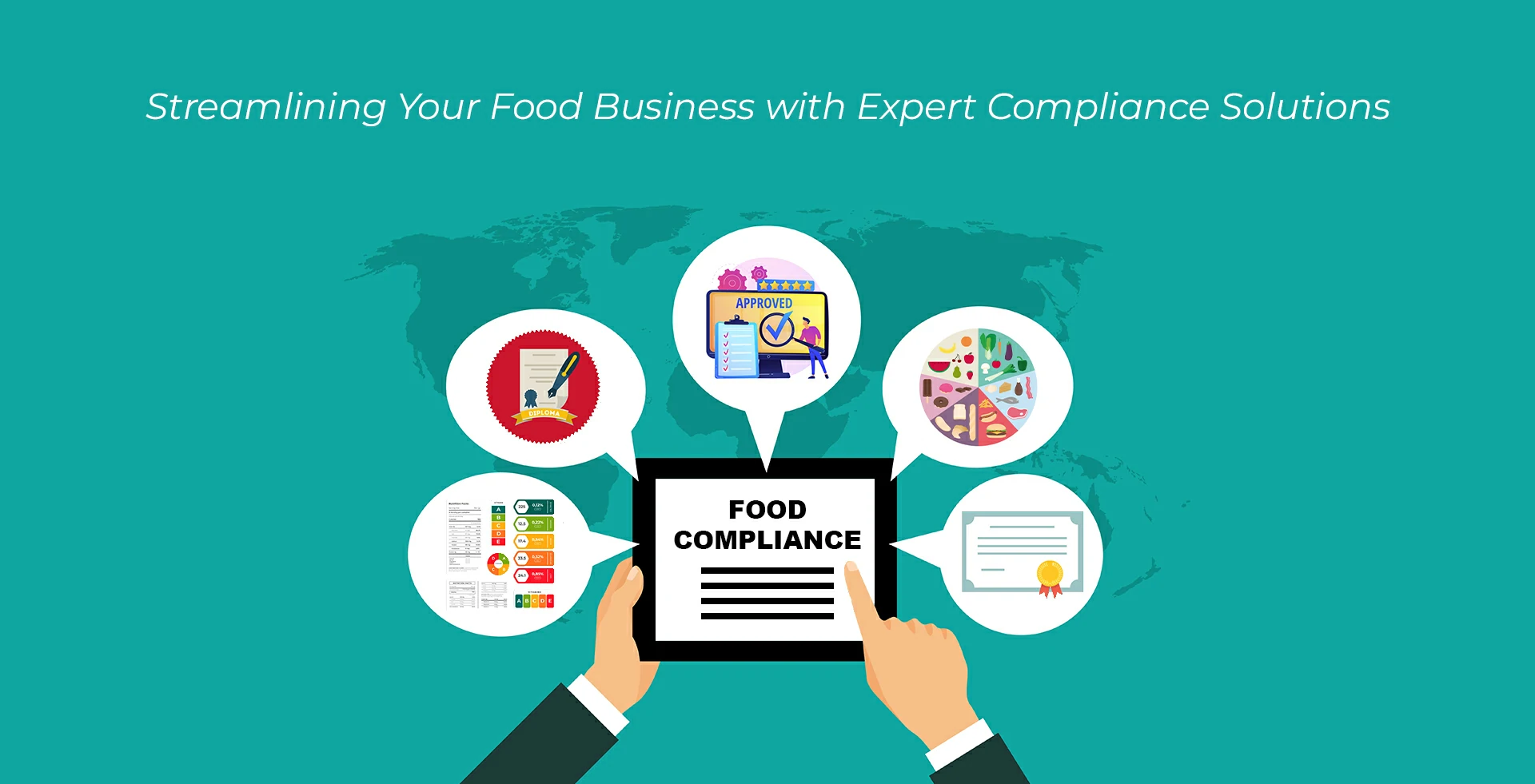12 Myths about Food Product Compliance
 21st September, 2023
21st September, 2023
12 Myths about Food Product Compliance
Food Product Compliance is a mandatory part of the food industry that ensures that the products that we consume meet safety & quality standards. Any Industry that deals in manufacturing or supplying food products require Food Products Compliance. However, there are various myths and disbeliefs about this subject that leads to confusion and misinformation.
Today in this article, we will banish the 12 major myths about food product compliance that will clear all your doubts of its importance and processes.
Myth 1: Compliance is Optional
One of the famous misconception about Food Compliance is that it is Optional. But in reality, Food product compliance is mandatory in most of the countries. The strictness of the food compliance is to protect public health and ensure product safety.
Myth 2: Small Businesses Are Exempt
Many of us believes that small food businesses are exempt from food compliance requirements. Although there are some exemptions for very small businesses, almost every food producer, regardless of size and investment scale are needed a compliance.
Myth 3: Compliance is the Same Everywhere
Food regulations does not remain same all over the world. It varies from one country to another and even region to region, depending on the law assigned by the regional administration. It is necessary to understand the specific requirements of the market as well as the country in which you run your business or sell your products.
Myth 4: Compliance Only Involves Labeling
Food Compliance is not just labelling. It requires other factors such as product safety, hygiene, allergen control and many more. Ignoring any of these aspects can lead to non-compliance.
Myth 5: Compliance is Expensive
Although Food Compliance may involve costs, the investment that you do will result in your long-term success of your business. Non-compliance can result in periodic fines, recalls and damage to your business image, which will be costlier. Cost of Food Compliance may be varying from provider to provider, although you can connect to legal firms such as Move Ahead for detailed information regarding food and legal compliances.
Myth 6: Compliance is Only for Regulators
Compliance benefits everyone, not just regulators. It protects consumers by ensuring the safety of products, builds consumer trust, and fosters fair competition within the industry.
Myth 7: It is the Regulators Responsibility
While regulators play a crucial role in monitoring and enforcing compliance, it is ultimately the responsibility of food producers and manufacturers to ensure their products meet all relevant standards.
Myth 8: Compliance is Static
Food regulations are constantly evolving to adapt to new scientific knowledge and emerging risks. Staying compliant requires ongoing vigilance and a willingness to adapt to changes in the regulatory landscape.
Myth 9: Compliance is Only About Government Regulations
Food product compliance extends beyond government regulations. It can also involve industry standards, certifications, and customer-specific requirements.
Myth 10: Self-Assessment is Sufficient
Relying solely on internal assessments may not be enough to ensure compliance. Third-party audits and inspections can provide independent verification of your adherence to regulations.
Myth 11: Compliance is Only About Avoiding Penalties
While avoiding penalties is a significant incentive for compliance, the primary goal should always be to protect consumer safety and provide high-quality products.
Myth 12: Compliance Guarantees Market Success
Although Food Compliance is mandatory, it does not guarantee market success. Apart from compliance, producers or Business individuals require various other factors such as product quality, marketing and preferences of the consumer. Also it depends on the provider that you have contacted for Food Compliance. As per statistics, Food Compliance offered by experienced names such as Move Ahead Food Compliance & Regulations proved to be far more Business beneficial in comparison to other firms.
In Conclusion, food product compliance is an essential requirement of the food industry. Understanding these myths help food producers, manufacturers and consumers understand the importance of regulations. Businesses can protect consumers, build trust and contribute to a safer and more transparent food supply chain by prioritizing compliance.
For more information regarding legal compliances, latest news and updates, subscribe to our newsletter. Also do check our Blogs for more updates on the same.




